
Key Takeaways
- The Trek Alpha 1.2 is a decent entry point to mountain and trail biking.
- The components are reliable, but won’t set any records.
- Handling and ride quality are serviceable, but braking is a major downside to this bike.
- Experienced riders will notice a bouncier ride and less responsive shifting.
This bike may not win any awards, or be able to compete with pricier models, but this could be a good first mountain bike if you’ve never ridden one before.
The Trek Alpha 1.2 is a budget-friendly option that utilizes the brand’s quality components in most areas. There may be some compromises considering the more specialized options out there, but rest assured that despite its flaws this bike is no slouch.
We’ve looked at the most-reviewed features (including the negatives as well as the positives) to bring you the best info available on the Alpha 1.2.
Where to Buy the Trek Alpha 1.2
The Trek Alpha 1.2 costs $959, and can be purchased directly from the Trek website.
A Brief History of Trek Bicycles
Trek was founded in the 1970s, attempting to penetrate the high-end market that had up until that point been dominated by European makers. It quickly gained a reputation for quality, with a foundation on hand-built steel frames.
However, launching its own factory in the 1980s meant that it also had to keep with the times, which meant a shift to aluminum frames. It also meant the advent of hybrid bikes, which combined the best of mountain bikes and road bikes into one line. The next decades led to several brand acquisitions and consistent recognition in the marketplace for excellence in quality and performance.
Trek’s Bontrager line of accessories is also a gold standard for those wanting to customize their bikes. They also held a long-standing licensing agreement to produce LeMond bikes, a prominent brand in speed racing (although this brand has since been discontinued).
Trek Alpha 1.2 Review
Trek Alpha 1.2 Specs and Geometry
The Alpha 1.2 has had several iterations over time, which means that although it is a budget-friendly option, it has had the chance to improve over time. Trek does a good job of incorporating research and features from its higher-end bikes on down the spectrum, and the Alpha is no exception. It benefits from the quality parts Trek has built its reputation on over the decades.
The Alpha 1.2 weighs 21.5 pounds. This is a lighter bike for sure, which (in addition to a price point under a thousand dollars) makes this a great starting point for riders that are exploring mountain and trail riding but don’t want to break the bank just yet.
This lighter bike weight does mean that the overall weight capacity is slightly lower. The total capacity (which includes the bike itself, the rider, and all equipment and accessories) is 275 pounds. This may not cause problems for the majority of riders, but if you plan on bringing any kind of gear with you on the trail, you will want to think carefully about what you bring along.
The handlebars are not curved, which can make it easier to bring them back to a straight-forward position. This is a benefit to those who might not be used to a curved setup, although it does have some limitations for more experienced riders and may be a less comfortable position on longer rides.
The price point and equipment set does put this bike at the lower end of the spectrum when it comes to quality and all-around excellence. This does not in any way diminish the many positives of this bike; but when set next to its bigger and more expensive counterparts, it lacks some luster and looks appropriately less outstanding by comparison.
There are seven different sizes to choose from, making this a versatile choice no matter what size you may be. A little planning and research gives you the perfect fit for your personal size.
Trek Alpha 1.2 Build Quality
We hesitate to return to the term “affordable” too often, but it does come into play when thinking about the build quality and included components. It is affordable in most senses of the word, and while that does not mean the quality is poor, you could do better by shelling out a few extra dollars and going with a more premium model.
Like many Trek bikes, the Alpha 1.2 features an aluminum frame. This lends to the overall lighter weight, and sets it in great company with its Trek brethren as sturdy bikes that will hold up to whatever Mother Nature can dish out.
The frame does rise at the front end, which does create a more comfortable upright riding position. This is a simple tweak that seasoned riders will appreciate, and can provide a helpful learning experience if it’s your first time on the trail.
As with other elements of the bike, the fork is also lightweight, which makes handling a bit easier to manage
The drivetrain assembly features a 2x9 setup, allowing for low and high shifting at any speed. This is a perfectly reliable option that adds a welcome layer of control for those who want to get the most out of their performance.
That being said, it is a slightly less specialized version than the one found in the road-going bike. This is one area where Trek may not have cut corners, but has instead opted for a less premium setup that shows in what results from the sum of its parts.
The pedals, however, seem to be of higher quality than can be found on other budget bikes. The various pieces will hold up well over time, and offer an easy pedaling experience. This is a positive that may seem simple, but is invaluable while out on the track.
Trek Alpha 1.2 Handling
The lightweight frame does cause some roughness in the ride. It may not absorb all of the shocks and bumps that come from rough terrain, but the ride quality is not diminished in such a way as to render it a miserable experience.
Over calmer terrains, the lighter tires do create a smooth ride. They are 25 millimeters wide, which is narrow by most standards but perfectly serviceable on this bike.
The Alpha 1.2 does accelerate well for its class. Easy pedaling and solid speed control create a fun experience on steady trails and uphill climbs.
The main downside to higher speed is that the brakes leave something to be desired. The brakes are a dual-pivot design, which is nowhere near as effective as hydraulic disc brakes. This is a major pitfall, and can especially cause problems if you have trouble managing your speed on downhill grades.
Overall, however, the handling and ride position does create a balanced seat for the rider. You can be confident in your control of the bike, and in how you can respond to your surroundings.
Trek Alpha 1.2 Ride Quality and Performance
One other complaint related to the ride quality is that the seat can be hard. This component is fairly easy to customize, however, and it may be worth looking into this if you plan to keep this bike for any length of time.
While the lighter tires do make it a capable performer in turns and straights, they can cause some wobble over trickier patches. Use extra caution when going over gravel or rockier areas, as the lighter tires will show their shortcomings if you’re not careful.
Climbing and Descending
It isn’t the fastest climber of the bunch, but it gets the job done. There’s plenty to like about this bike, even if it won’t set any records flying uphill.
What it lacks in uphill speed, it more than makes up for on the downhill push. But as we’ve noted, that’s not always a good thing. Keep your wits about you, and be ready to pay extra attention to brake management so you don’t spin out of control.
Trek Alpha 1.2 Pros and Cons
Trek Alpha 1.2 Pros
The Alpha 1.2 makes the most of its Trek brand reputation, and leans heavily into the components it has built its name upon.
It is a lighter bike than others at higher price points, with the trademark aluminum frame that Trek is known for.
Setting the handlebars in a more straight configuration may turn away some trail-riding veterans, but this can lend itself to a stable and reliable ride for those who need to log more hours on the trail.
The acceleration is reliable enough, and the ride position will make anyone comfortable on straight tracks and uphill climbs.
- Brand reputation and overall quality
- Light weight
- Aluminum frame
- Straight handlebars
- Reliable acceleration
- Solid handling and comfortable riding position
Trek Alpha 1.2 Cons
The Trek Alpha 1.2 does come at an affordable price point, but it does follow that the components and build quality will be slightly lower than other bikes.
The drivetrain is less specialized, and while that may not mean much to some, it can turn away other riders who may want that level of control.
It does feature a rougher ride due to its lighter weight, and the lighter tires also take away some stability. It may be fine on steady tracks, but when the going gets tough you may want to think about upgrading in certain areas.
One area you don’t want to skimp on when upgrading this bike is the brakes. Look into how you can best fix this shortcoming by choosing new brakes after purchasing, or decide if it’s worth choosing a different bike altogether.
- Lower overall quality when compared to premium models
- Less specialized drivetrain
- Rougher ride due to lighter frame
- Lighter tires are less stable
- Braking leaves much to be desired







































































































































































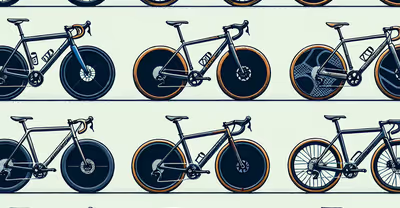

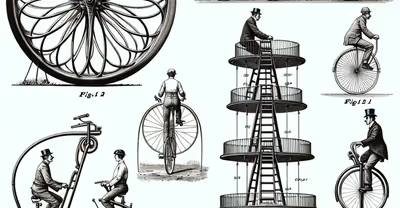










































































































































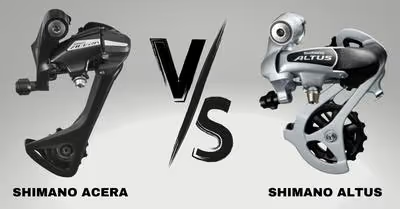
















































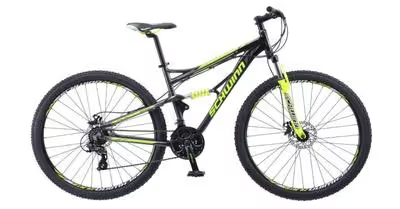




























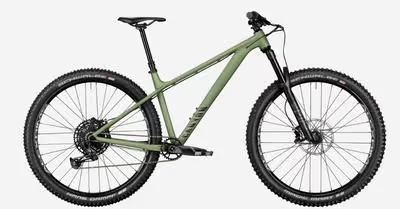











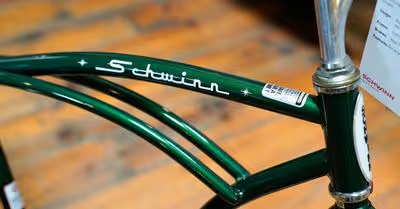












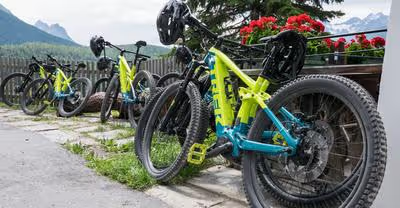






























































































































































































































































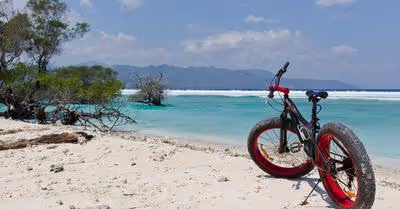


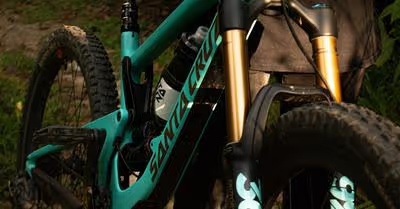


















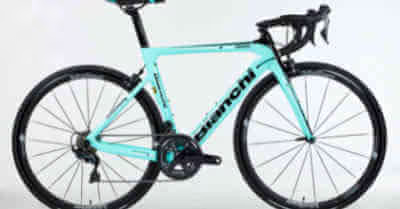


































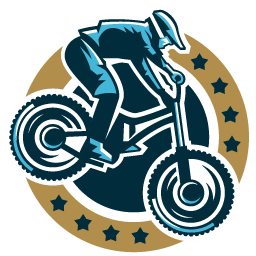
.avif)
